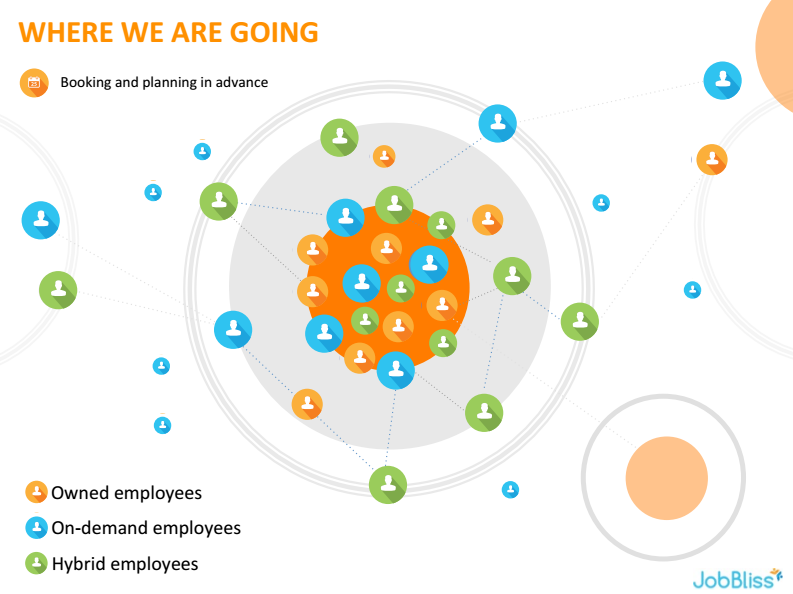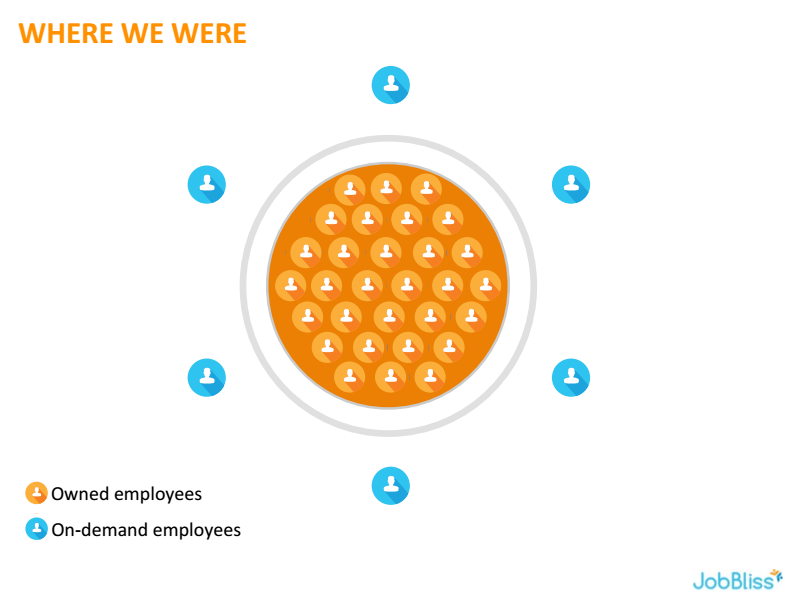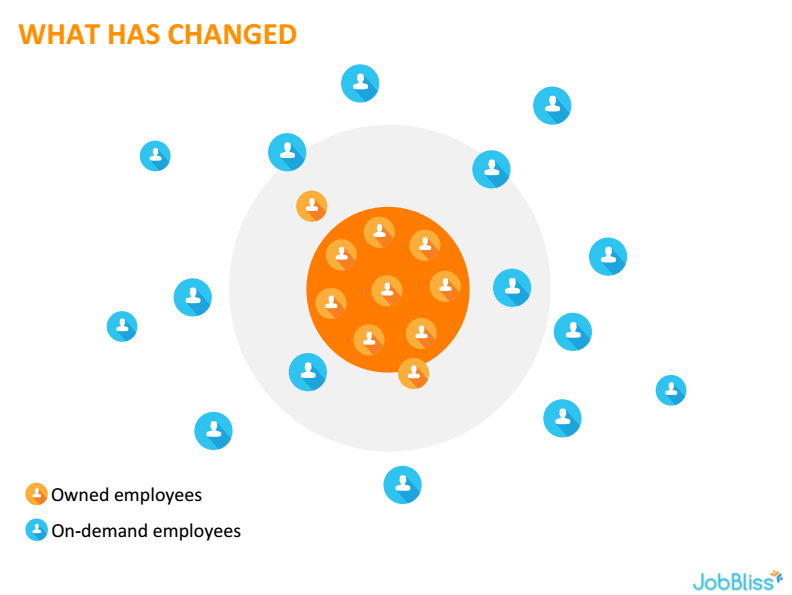Working at the convergence of precarious employment and the digital revolution
Continuing our discussion on the trend towards precarious employment and its impact on young workers, I recently sat down with Angie Kramer, Founder and CEO of JobBliss. JobBliss is a site for freelancers and companies to find each other without the need for expensive recruiters. Free for freelancers, the site allows them to apply directly for short-term positions with numerous companies. If a company likes a particular freelancer, they are able to add them to their personal ‘Little Black Book’ database and book flexible workers in advance of upcoming projects. This allows both employers and freelancers the ability to plan for the future.
Angie started JobBliss in response to her own experiences as a freelancer and those of her friends. As a freelancer in the advertising world, she found that it was impossible to secure enough work and to have work lined up for the future. Ultimately, Angie decided to go full-time, but was then faced with the need of her employer to scale up and scale down their workforce, moment to moment. At the time, she had little choice but to use recruiters who charged significant fees in order to find talent on short notice. Obviously, this was all extremely frustrating. JobBliss was created by Angie as a sort of matchmaking service between freelancers and companies. Initially it began as an experimental prototype, but before she knew it, hundreds of freelancers and companies had signed up.
Although JobBliss is clearly meeting a need, I asked Angie about the larger concern of whether services like JobBliss further entrench the trend towards precarious employment. However, as Angie sees it, JobBliss is a product of the prevailing economic winds and the increasing need for companies to have a nimble workforce. JobBliss is taking the trend of precarious employment and trying to build back some of the traditional expectations of job security, benefits, and worker protections. This empowers freelancers.
JobBliss working is trying to create a new kind of social safety net for freelancers. For example, they are able to leverage the fact that they have nearly 3,000 registered freelancers to gain access to tools and services at group rates. For example, JobBliss is establishing partnerships with invoicing software companies and is negotiating with health insurance companies to offer a benefits package. Angie says that benefits are of particular concern to younger freelancers who may not have a partner with benefits through a traditional employer, or the volume of work which would allow them to fund an individual benefits plan. Lastly, JobBliss is looking into ways that their system could be used as documentation of full-time and steady employment by freelancers who are looking to acquire a mortgage or bank loan.
Another issue that JobBliss is tackling is that of professional development, which can be difficult to facilitate without traditional employers. Currently, when a freelancer signs up to JobBliss, they are asked to add ‘tags’ to their profile based on skills they have acquired from previous experience. Similarly, employers add tags to their job postings which allows for a quick, cost effective, way to match postings to freelancers. Once a job is completed, employers are asked to endorse the skills of the freelancer and ‘+1s’ are added to the endorsed skills on the freelancer’s profile. This allows the freelancer to build a solid record of the types of work they are able to complete. In the future, the JobBliss team has been putting thought into ways that freelancers could add tags to their profiles for skills they would like to learn. The question will be how to encourage employers to hire freelancers based on yet-to-be-developed skills and how to incentivise their support of professional development within the freelance economy.

There are significant challenges for JobBliss to truly recreate the benefits and opportunities that many young people were brought up to expect from a career. The systems and policies that were put in place to protect workers, encourage retirement savings, and ensure equal opportunity need innovation in the face of numerous self-employed, flexible, and insecure workers. Yet, despite these remaining challenges, JobBliss provides a great place for new freelancers to jump into the sector. By providing some of the basic tools and services that freelancers need, JobBliss gives freelancers a central hub to find work, build relationships, and manage their resources, time, and skills effectively. JobBliss is poised to become an extremely beneficial actor in the freelance economy – allowing freelancers to free themselves of uncertainty and maximize the flexibility offered by the trend.

